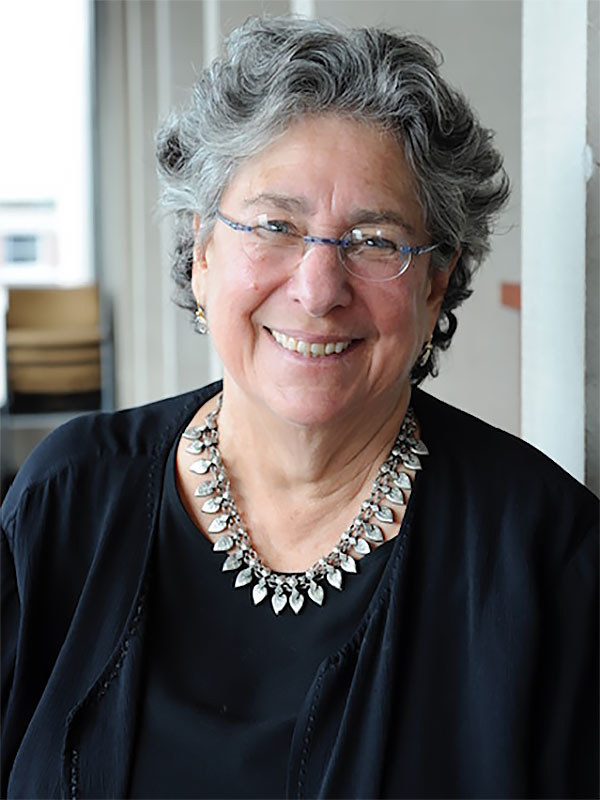
On April, 14, 2024 Nancy Neveloff Dubler, LL.B. Professor Emerita died after months of struggle with chronic lung and heart disease, surrounded by her loving family. This was an enormous loss not only to her family, but also to bioethics, as Nancy was one of our founding mothers. Her contributions to the field include early work on many issues that have since come to the forefront, including the rights of incarcerated people to health care, and ethics challenges throughout medicine, including transplant, end of life care, and disability. She was among the first scholars to address the challenge of fairly distributing ventilators and other scarce resources in a pandemic, foreshadowing by more than a decade this terrible dilemma.
But Nancy is perhaps best known for her groundbreaking work on bioethics consultation and education and it is this work that best captures her core values and motivations. Nancy had a special affinity for those with less power in the world, and she dedicated herself to addressing that disparity. Starting in the 1970s at Montefiore, Nancy steeped herself in the world of the hospital, learning its language and strange customs, and becoming a powerful advocate for those whose rights and values were not always respected, or were ignored, or even aggressively trampled in the context of medicine. One of her primary goals for bioethics was to “level the playing field” – to restore agency and power when it had been denied. She challenged bioethics to move away from the model of determining, based on abstract principles alone, the best resolution to a clinical dilemma. She felt keenly the pain suffered by patients, families and professionals grappling with hard decisions, and she prioritized their points of view. Nancy argued for a balancing of the varying values, needs and perspectives of the participants, seeking to find resolutions that were both just and acceptable to all. This was a revolutionary and radical shift in approach. Her book on bioethics mediation, co-authored with her dear friend Carol Liebman, is the definitive text on the subject and is widely used today across the country.
Nancy profoundly shaped bioethics education. With the late David Rothman, she co-founded the Bioethics Certificate program, a year-long interdisciplinary program drawing upon texts from philosophy, history, literature, law and medicine. It is still going strong at Montefiore, 30 years later. Generations of professionals from Montefiore, HHC, Sloan Kettering, NYU and indeed most of NY city’s hospitals have graduated from the Certificate Program. She was the first leader of bioethics education and clinical work at Montefiore, a privilege she handed over to me, and which I’ve now passed along to a vigorous and creative team, who proudly continue the traditions Nancy started. Recently Nancy had a key role in encouraging the formation of the Empire State Bioethics Consortium, a large and growing group of professionals sharing their bioethics expertise throughout NY State. Nancy worked, and loved her work her whole life, to the great benefit of so many.
Nancy was a force of nature. She was respected by all, loved by many, and terrifying to some. Her intelligence was formidable. I have been at meetings and conferences when she felt a prior speaker had failed to capture the essence of an issue, or worse, had made an argument that diminished vulnerable others. She was never cruel, but she could carve up a weak argument like a sushi master with a salmon filet. You could tell by a sort of flicker in her expression, a set to her jaw, when this was going to happen. I used to think in those moments, “O this is going to be fun.”
Nancy was always herself, the 100% genuine and authentic article. She was incredibly warm, generous, irreverent, sometimes sad, and often extremely funny. Once, we were standing together, all dressed up at a colleague’s wedding and she pointed out that she was wearing black sneakers. She conspiratorially asked the group, “Guess what difference it makes if I wear sneakers to an event like this?” We shrugged. Her answer: “NONE AT ALL!!!”
Nancy was a treasured mentor for countless numbers of people drawn to bioethics, myself among them. She called us her “chickens,” and took great care of her flock. She’s directly responsible for most jobs I’ve had, essentially telling the person doing the hiring that they would be hiring me. I don’t know what I would have done for a living without her, but it would have been much less interesting and much less fun. She was, for so many of us, a crucial model of integrity and creativity, and a beloved friend. We will all long remember Nancy, and her memory truly will be a blessing.
Tia Powell, M.D.